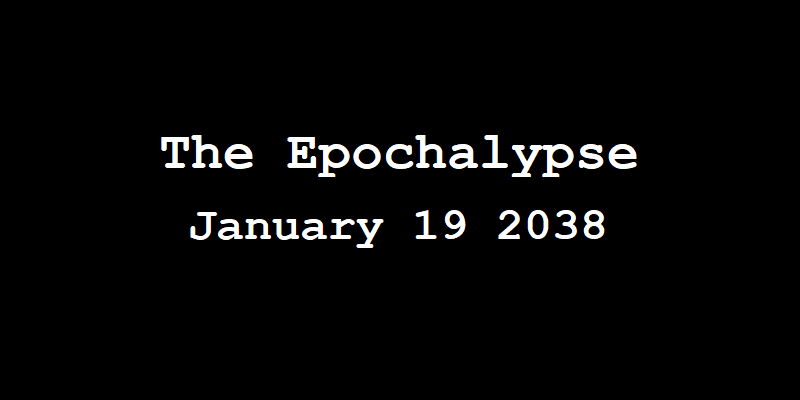Suppose we’re still alive by 19 January 2038—not obliterated by nuclear war or another pandemic—then we’ll have one more apocalypse to worry about: the Epochalypse.
On 19 January 2038 at precisely 03:14:07 UTC, millions of digital systems might start behaving like it’s 1901. That’s not a romantic steampunk dream—it’s a ticking software time bomb known as the Year 2038 Problem, or Y2K38. This looming issue, eerily similar to the infamous Y2K bug, could crash or corrupt systems worldwide—unless they’re patched in time.
What Is the Year 2038 Problem?
The Y2038 bug exists in computer systems that track time as the number of seconds since the Unix epoch: 00:00:00 UTC on 1 January 1970. These systems often use a signed 32-bit integer to store that count. That data type can only represent values from –2,147,483,648 to 2,147,483,647 when that maximum value is reached—03:14:07 UTC on 19 January 2038. Adding one more second causes the number to overflow and flip to –2,147,483,648, which Unix interprets as 13 December 1901 at 20:45:52.
From that moment, software relying on accurate timekeeping could malfunction, crash, or process data incorrectly. In an interconnected world where timestamps are essential to everything from databases to transport systems, that’s a real threat.
Why It’s a Problem
The core issue isn’t about time—it’s about how time is represented in computers, particularly in embedded and legacy systems that are not easily updated. These include:
-
File systems that log timestamps in inodes
-
Databases using 32-bit date fields
-
SQL functions relying on UNIX_TIMESTAMP()
-
Embedded systems in cars, planes, routers, GPS devices, and industrial controllers
Worse still, many of these systems are designed to last decades and may still be operational by 2038. For example, automotive systems like ABS or aircraft navigation rely heavily on embedded chips running Unix-like OSes. Some Android devices have already crashed when their date was manually set beyond 2038.
Early Failures and What We’ve Learned
The bug isn’t theoretical. In 2006, AOLserver systems began crashing because a “never timeout” kludge scheduled some tasks a billion seconds in the future, accidentally triggering the overflow. Operators had to rush to edit config files and set lower timeout values. As early as 2010, developers noticed that certain GPS-based systems failed when calculating timestamps far into the future.
How to Fix It (and Why It’s Complicated)
The simplest solution is to move from a 32-bit time representation to a 64-bit signed integer, representing roughly 292 billion years worth of seconds—a stretch even the sun can’t survive. Modern 64-bit operating systems have already made this change, but retrofitting older, deeply embedded systems is a more complicated story.
Other solutions include:
-
Using unsigned 32-bit integers, which delays the problem until 2106 (but breaks support for dates before 1970)
-
Transitioning to 64-bit timestamps with microsecond or millisecond resolution, as used by Java and JavaScript
-
Adopting more accurate time formats like TAI64, based on atomic time and leap-second-aware
The Clock Is Ticking
The Year 2038 problem may not arrive with the spectacle of Y2K, but it has the potential to quietly disrupt global infrastructure, from database corruption to transportation hiccups. It’s already here in some systems that calculate or validate future dates. The difference is that many organizations now take date overflow bugs more seriously, thanks to the hard lessons of Y2K.
Still, many legacy systems lurk in the background, quietly counting the seconds. And unless they’re upgraded, patched, or replaced before 2038, they might wake up thinking it’s the dawn of the 20th century.
So if you’re still around in 2038, toast the epoch. And maybe DON’T fly that day.


